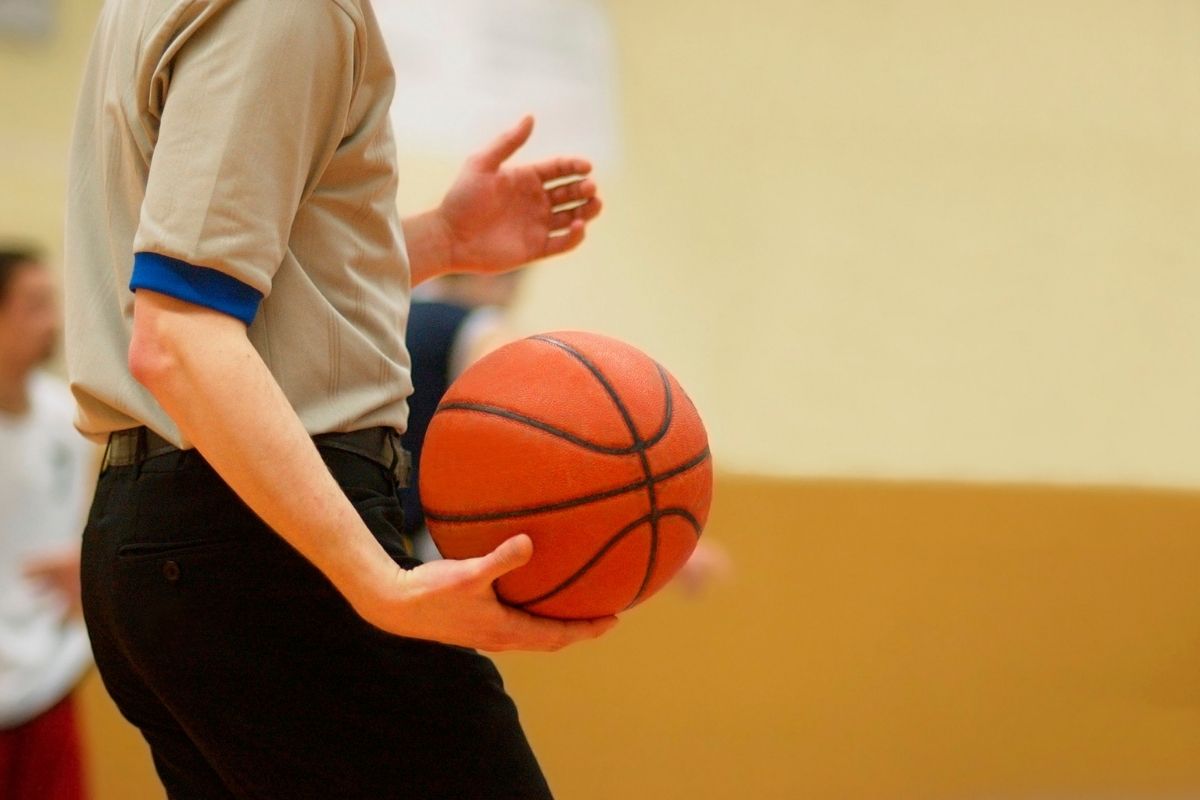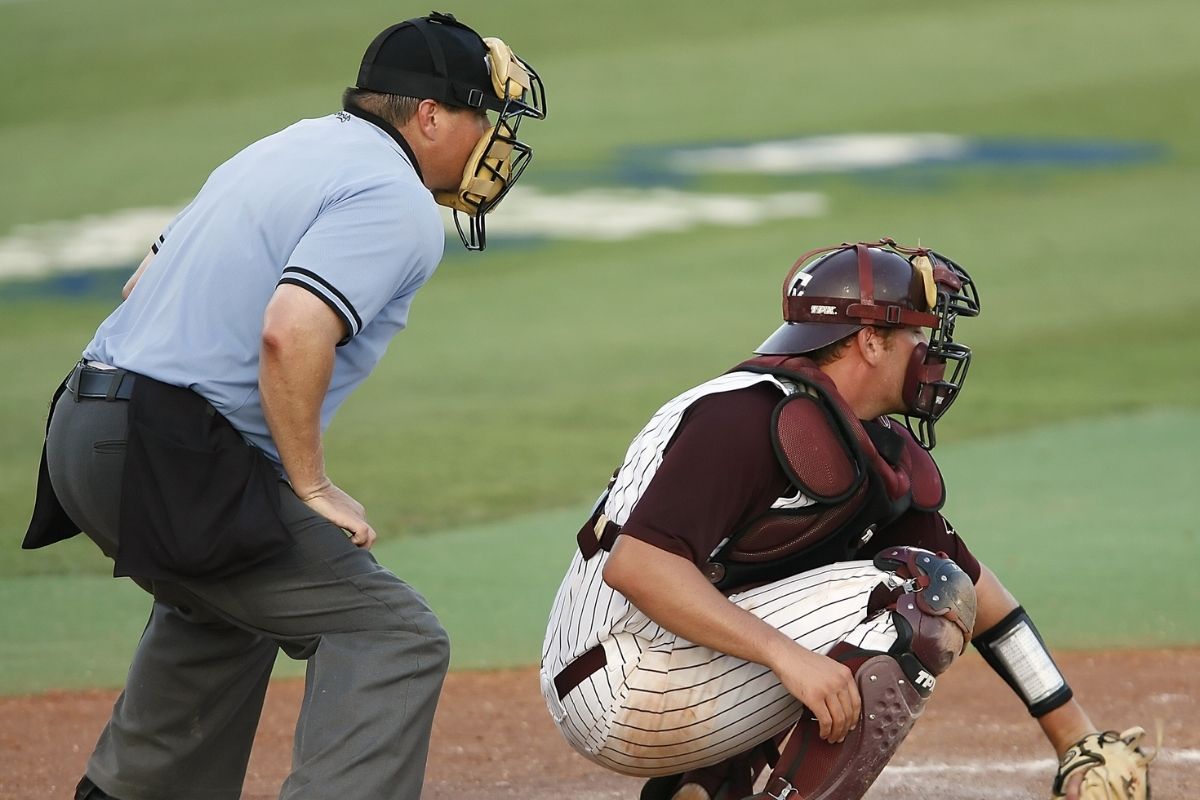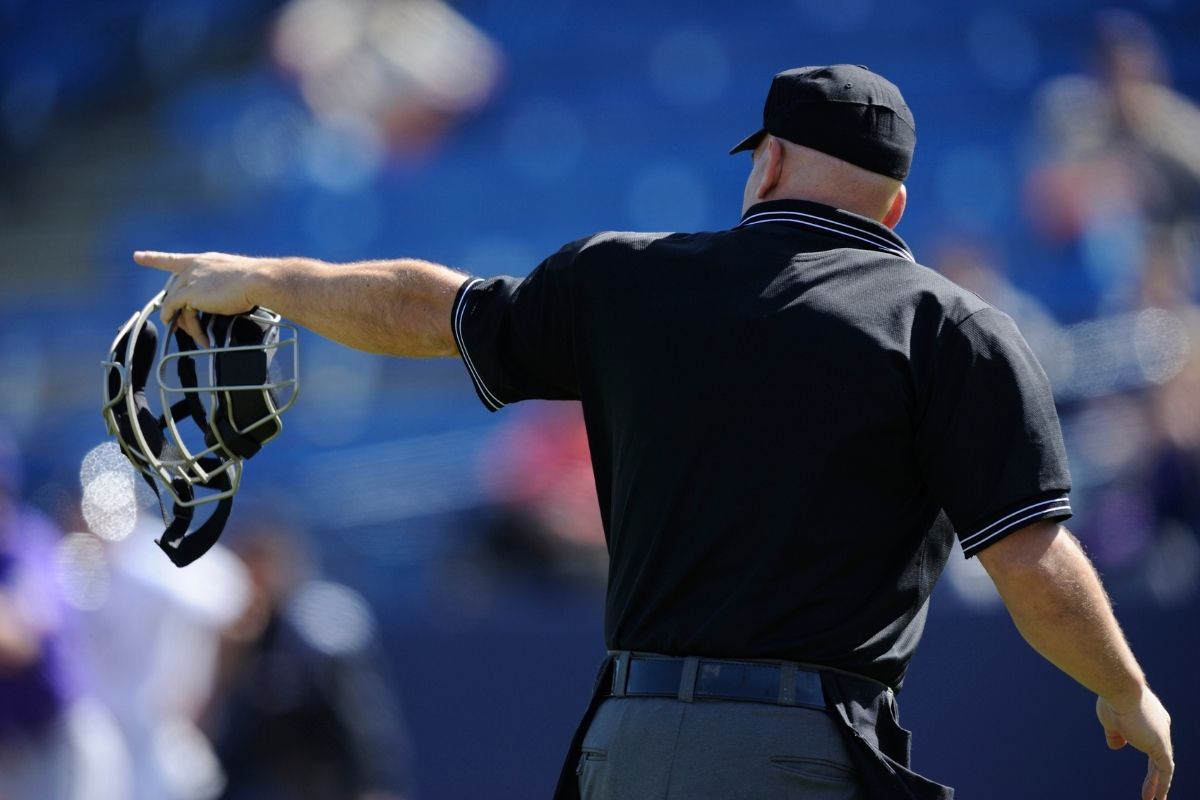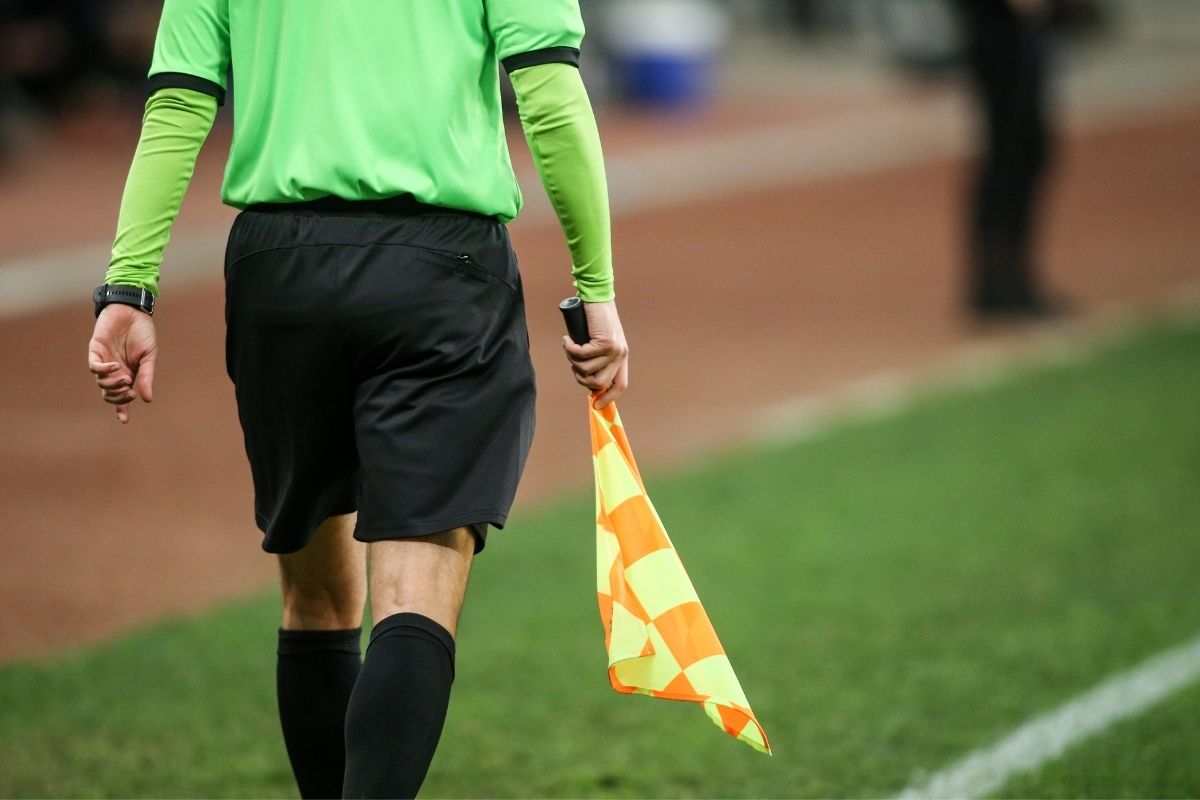Referees are not just responsible for keeping the game fair, but they also have to deal with some truly challenging situations.
A ref’s duties require them to remain objective and impartial at all times, regardless of the circumstances.
Fortunately, most games go smoothly and don’t involve any unpleasant situations or scenarios. However, there will always be occasions when a referee is subject to verbal abuse from spectators. This is an unfortunate part of being a referee which you can expect to deal with at some point during your career as one.
Unfortunately, this type of behavior is commonplace in many sports because of the way players feel that referees have affected the outcome of their game or performance.
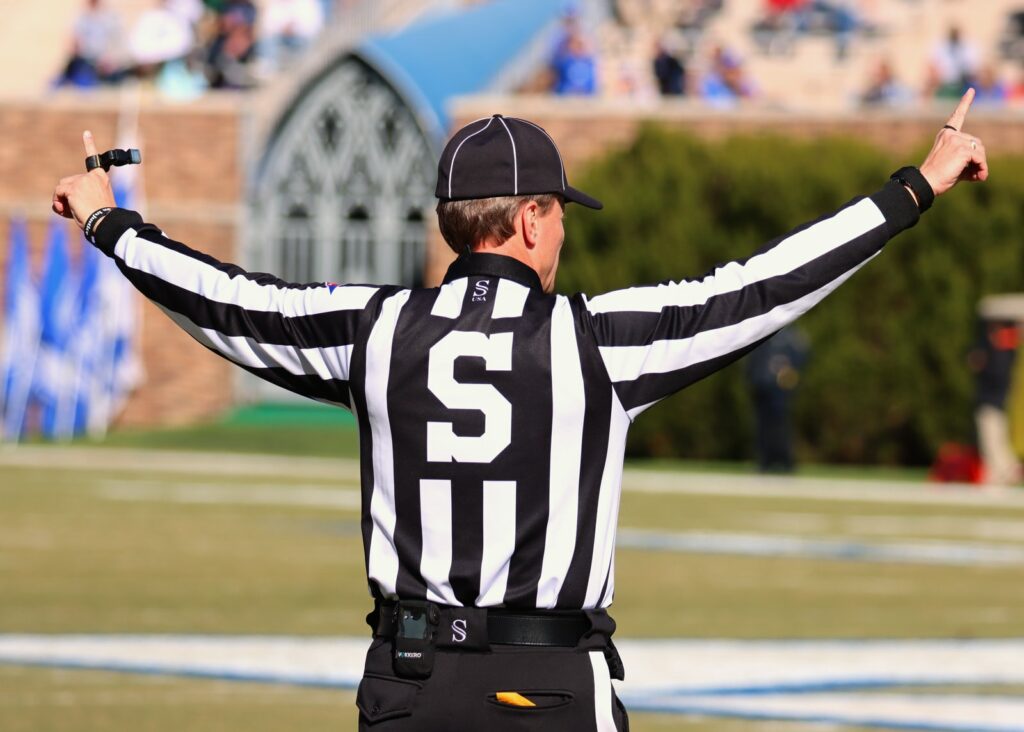

If you’re thinking about becoming a referee yourself, here’s how you can deal with spectator abuse effectively and continue doing what you love:
Why do referees get abused by spectators?
A referee exists to ensure that the rules of the game are followed and that every player is given a fair chance at winning.
Despite this, referees can be the target of abuse from players, coaches, and spectators alike. For spectators, abuse is often the result of a heated game where the outcome has been determined by the refs.
For example, in basketball, if a team is leading with five seconds to go and the other team gets a last-second basket, the spectators may feel that they were robbed of a win.
In sports where the outcome is decided by judges, such as gymnastics, tennis, and figure skating, spectators are also likely to blame the referee if they feel that the outcome has been unfairly decided.
What to do when you’re being verbally abused
As a referee, it is important to remember that abuse is not your fault. You’re only doing your job, and the players on the field are the ones who are responsible for the outcome of the game.
One of the best ways to deal with spectator abuse is to keep calm and remember that the person insulting you wants you to become flustered and lose your cool. Stay as calm as possible and keep your emotions in check, no matter how tense and uncomfortable the situation becomes.
If possible, try to remove yourself from the situation by walking away. Walk over to an official and ask them to remove the abusive spectator, or walk over to the stands and remove yourself from the situation.
While removing yourself from the situation is the best option in many situations, it’s important to remember that you still have a responsibility to deal with spectator abuse.
This is particularly important because verbal abuse can have a negative effect on the other players, including the spectators themselves.
Speak up and request that spectators behave respectfully
If you find yourself being verbally abused, you have the right to ask that the spectator behave respectfully.
You are not just an official; you are also a human being who has feelings.
If you are being verbally abused and the spectator is also directing that abuse towards other players, referees, or spectators, ask them to stop.
Be firm but polite, and the spectator may choose to obey and back off. If you ask the spectator to stop verbally abusing you and they refuse, you can speak to your superior about the situation and request that the spectator be escorted out of the stadium or arena.
You are not just an official;
you are also a human being who has feelings.
For large games or tournaments, you can even submit a report to the governing body requesting that the spectator be banned from future events.
Get support from your fellow referees and your organization
If you find yourself being verbally abused during a game, remember that you’re not alone.
Referees often stick together and support one another during difficult situations. One of the best ways to deal with spectator abuse is to reach out to your fellow referees and request that they support you throughout the game.
If you aren’t comfortable talking to your fellow referees about the abuse, you can also contact your league or organizational officials and request that they help you deal with the situation.
Bystander intervention and de-escalation
If you find yourself being verbally abused by spectators, you can use de-escalation techniques to try and calm the situation.
Try to remain calm and collected, and avoid getting into an argument with the spectator. Keep your voice down and speak calmly and politely, and try to avoid stooping to their level by responding to the abuse.
If you find yourself in a situation where spectators are directing abuse towards you, try to find a way to redirect the abuse towards someone else. For example, if spectators are screaming at you to make a call, ask them to tell the players to stop so that you can make your decision. The spectators may be so focused on berating you that they forget to direct their attention towards the players until it is too late.
This strategy also works well if you find yourself in a confrontational situation with an opposing coach.
Know the rules before you step on the field
Before you start officiating games, it’s important to understand that the rules of the game are there for a reason.
While the rules may not always be followed to the letter, they exist for a reason: to ensure fairness and safety in the game. If a player or team attempts to persuade you to change the outcome of their game through verbal abuse, you can remind them that the rules are the rules and nothing can be changed.
In many cases, this reminder will be enough to stop spectators from verbally abusing you. However, if the abuse continues, you can refer to the rules and remind the spectators that you are simply doing your job.
Can a ref send off a spectator?
Sometimes fan behavior may become too abusive to tolerate.
In these situations, it could be better to have the spectator removed from the venue. The reason for this is that the spectator may be a safety hazard and, in some cases, they may be trying to cause a disturbance.
If the spectator is attempting to cause a disturbance, they are not allowed on the field and their actions could result in serious injury.
When you are officiating a game, you will have several scenarios that will require you to eject a fan. But what are your options? In most cases, you have a choice to eject the spectator or you can send them off the field.
However, in some situations, there are certain rules that must be followed in order for a spectator to be ejected from the game.
Final Words: Celebrate the Games and Move On
Spectator abuse can be a challenging and emotional situation but it is important to remember that it is not your fault.
If you find yourself in an uncomfortable situation, try to remove yourself from the situation as quickly as possible. If you are unable to remove yourself, ask the spectators to stop verbally abusing you.
You have the right to be treated with respect, just like every other person out there.
When the abusive situation is over, make sure that you take the time to process what happened. Be sure to take care of your emotional and physical health, and try to move forward from the situation.
Even though games can be intense and challenging, it’s important to remember that they are just games. You are there to facilitate a fun and fair environment for players to enjoy the sport they love, and you deserve to be treated with the respect that you deserve.
- Can You Play Pickleball on Grass? Tips and Tricks - June 12, 2023
- Do Pickleballs Wear Out? Everything You Need to Know - June 12, 2023
- Can You Play Pickleball on Concrete? A Guide to Playing on Hard Surfaces - June 12, 2023


